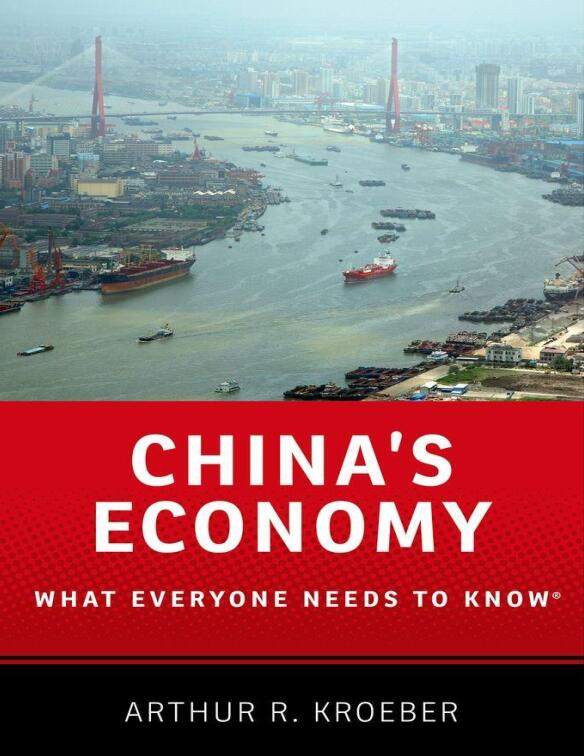本题要求编写程序,使用指针方式求一个给定的m×n矩阵各行元素之和。(例如:scanf("%d",*(matrix+i)+j);//使用指针方式访问二维数组元素)输入格式:输入第一行给出两个正整数m和n(1intmain(){intm,n;scanf("%d%d",&m,&n);intmatrix[6][6];//使用指针方式输入矩阵元素for(inti=0;i
信息获取、扫描与服务识别、漏洞验证、嗅探攻击、代理与隧道、metasploit渗透攻击等
Utopia.️
web安全安全网络
1.信息获取信息获取是渗透测试和安全评估的第一步,主要目的是收集目标系统的各种信息。这些信息可以帮助确定攻击面和潜在的安全漏洞。技术和工具:域名信息:使用whois查询域名注册信息。DNS查询:使用nslookup或dig获取DNS记录,包括A记录、MX记录等。网络扫描:使用nmap或Masscan扫描目标网络,收集IP地址和开放端口信息。公开信息:通过搜索引擎、社交媒体、公司网站等公开资源获取目
java实现,使用向量相似度 输入字符串,在定义好的字符串集合中根据语义匹配出最准的一个。
melck
1024程序员节
以下是完整的Java示例代码,包括字符串集合的定义和根据输入字符串匹配最相似字符串的逻辑:importjava.util.*;publicclassSemanticMatching{publicstaticvoidmain(String[]args){//定义字符串集合ListstringCollection=Arrays.asList("Whereistherestroom?","Canyout
C语言学习记录——BC61 牛牛的二三七整除
曾浩轩
C语言学习记录学习c语言
牛牛的二三七整除_牛客题霸_牛客网(nowcoder.com)#includeintmain(){inta;//定义我们要输入的整数scanf("%d",&a);//输入整数if(a%2==0)//a%2==0说明a能被2整除{printf("2");//输出2空,因为a有可能还会被3和7整除,但输出中格式显示每个数字是间隔的}//并且要升序输出,所以先判断能否被2整除,再判断能否被3整除,最后是
java竞赛优化输入输出效率
px不是xp
蓝桥准备java开发语言
在编程竞赛中,输入输出效率至关重要。Java的`Scanner`和`System.out.println`虽然简单,但在处理大规模数据时会严重拖慢速度。以下是**竞赛专用输入输出模板**及其原理详解,助你轻松应对高频I/O场景。---###⚡竞赛级输入输出模板(Java)importjava.io.*;importjava.util.*;publicclassMain{ publicstatic
基于python使用scanpy分析单细胞转录组数据
探序基因
单细胞分析python开发语言
探序基因肿瘤研究院整理相关后缀的格式介绍:.h5ad:是一种用于存储单细胞数据的文件格式,可以通过anndata库在Python中处理.loom:高效的数据存储格式(.loom文件),使得用户可以轻松地存储、查询和分析大规模的单细胞数据集。Loompy的设计目标是提供一个快速、灵活且易于使用的工具,以支持生物信息学家和研究人员在单细胞水平上进行数据分析。python的单细胞转录组数据结构说明:da
前端导出word文件—包含canvas(echarts图表)
Liuer_Qin
jscanvasechartsecharts前端javascript
一、使用的插件html-docx-js二、整体思路因为canvas是运行在内存中的,所以不能简单的通过dom获取canvas图片,需要手动的先将canvas转为image。三、实现先克隆要下载的DOM的副本。因为canvas是运行在内存中的,所以也不能通过cloneNode方法克隆下来(克隆下来是空的)。我们这里将原DOM中的canvas转成图片,然后插入到副本的对应位置,这样操作不会影响原DOM
《编程小白必看!字符加减法开启大小写转换之门,解锁数学分析方法密码,列方程思想》
1zero10
c语言算法
字符加减法的应用1.输入小写字母,输出大写字母首先肯定有定义变量ch;并且让我们可以在黑框输入一个变量,也就是任意一个小写字母charch;scanf("%c\n",ch);接着分析小写字母和大写字母的联系:举例分析,比如b在小写字母表排第二位,而B在大写字母表里也排第二位小写字母和大写字母都有26个所以可以利用排位一致的特点进行方程的构造设小写字母为ch(上面已经设了)设大写字母为y到这里还毫无
redis的主从复制配置
zhaikaiyun
redis
通过持久化功能,redis保证了即使在服务器重启的情况下也不会丢失或少量丢失数据,但是由于数据存储在一台服务器上,如果这台服务器出现故障,比如磁盘坏了,也会导致数据丢失。为了避免这个单点故障,可以使用主从复制的方式,将主更新的数据,自动更新同步到其他服务器上。主从节点配置[root@k8smasterconfig]#moreredis6380.confinclude/data/redis/redi
二进制、八进制、十进制和十六进制的相互转换
前端熊猫
C语言开发语言二进制八进制十六进制C语言
printf函数printf函数是C语言中用于将格式化的数据输出到标准输出(通常是屏幕)的函数。它位于stdio.h头文件中,因此在使用之前需要包含该头文件。printf函数的格式说明符格式说明符说明示例%d或%i输出或输入十进制有符号整数printf("%d",10);scanf("%d",&num);%u输出或输入十进制无符号整数printf("%u",10U);scanf("%u",&uns
C语言——算找零
yiqi_perss
C语言c语言c++算法
#includeintmain(){intprice=0;printf("请输入金额(元):");scanf("%d",&price);intchange=100-price;printf("找您%d元。\n",change);return0;}需要:1、有地方放输入的数字;2、有办法输入数字;3、输入的数字能参与计算。1.7读整数使用一个新的函数:scanf(“”);scanf("%d",&zh
如何在Python中使用Etherscan API进行以太坊数据查询
scaFHIO
python开发语言
Etherscan是领先的区块链浏览器、搜索、API和分析平台,专注于以太坊——一个去中心化的智能合约平台。在本篇文章中,我们将介绍如何在Python中使用EtherscanAPI进行以太坊数据查询,并提供详细的代码示例。1.技术背景介绍Etherscan提供了丰富的API接口,允许开发者查询以太坊网络上的各种数据,包括交易、账户、合约等信息。使用这些API接口,开发者可以方便地集成以太坊数据到自
mysql不生成socket_不能创建 mysql.sock.lock是怎么回事
莉莉莉莉酱
mysql不生成socket
展开全部一、原因:1、linux系统一62616964757a686964616fe78988e69d8331333363356533次不正常关机后,连接mysql的时候系统提示不能通过/tmp/mysql.sock文件进行连接,或者非正确关闭时,导致mysql.sock文件再次丢失,当你在次启动时出现如下错误,connectmysqldfaild,/tmp/mysql.sockcan'tfind
mongoDB 命令行操作
小胖_@
mongomongodb数据库命令行
mongoDBmongo命令MongoDBshellversionv4.4.15usage:mongo[options][dbaddress][filenames(endingin.js)]dbaddresscanbe:foofoodatabaseonlocalmachine192.168.0.5/foofoodatabaseon192.168.0.5machine192.168.0.5:9999
i css svg,如何设置 CSS 背景图中的 SVG 的颜色
魔法少女皮皮瞎
icsssvg
ColoringSVGsinCSSBackgroundImages如何设置CSS背景图中的SVG的颜色IloveusingSVGinCSSbackgroundimagesbutitsucksthatyoucan'talterthefillcoloreasilywithinyourCSS.Hereareafewwaysaroundthat.在CSS背景中我喜欢用SVG,但是,这会导致你无法用CSS很
Java零基础入门笔记:(3)程序控制
Sherlock Ma
JavaJava入门java笔记开发语言程序人生学习方法改行学it跳槽
前言本笔记是学习狂神的java教程,建议配合视频,学习体验更佳。【狂神说Java】Java零基础学习视频通俗易懂_哔哩哔哩_bilibiliScanner对象之前我们学的基本语法中我们并没有实现程序和人的交互,但是Java给我们提供了这样一个工具类,我们可以获取用户的输入。Scanner类是Java中的一个实用工具类,位于java.util包中,主要用于从用户输入、文件或其他输入源中读取数据。它提
k8s rook-ceph MountDevice failed for volume pvc An operation with the given Volume ID already exists
时空无限
Kuberneteskubernetesceph
https://github.com/rook/rook/issues/4896环境kubeadm搭建的k8s集群,rook-ceph部署的ceph存储,monpod所在宿主机和挂载客户端机器pod所在机器不在一个二层网络里。故障pod挂载不上pvc,describepod信息如下MountDevicefailedforvolumepvcAnoperationwiththegivenVolumeI
A new method for forward-looking scanning radar imaging based on L1/2 regularization 论文阅读
yangqoor
论文阅读
Anewmethodforforward-lookingscanningradarimagingbasedonL1/2regularization论文阅读内容概述关键创新点1.论文的研究目标研究目标2.新方法的特点与优势传统方法局限L1/2L_{1/2}L1/2正则化的创新优势对比3.实验设计与结果分析实验设置关键结果数据支持可借鉴的创新点与学习建议核心创新点推荐学习路径内容概述该论文提出了一种基
GSND 5345Q, Fundamentals of Data Science
后端
Homework4GSND5345Q,FundamentalsofDataScienceDueWednesday,February19th,2025Nowitstimetopracticewhatwehavelearnedinclassandlearnevenmore!NotethatfromnowonyourhomeworkshouldbewritteninRMarkdown.Turninyou
mac vim编辑器保存时E212: Can‘t open file for writing
weixin_51302377
macosvim
例如输入vi~/.bash_profile时返回该错误则直接在终端输入open~/.bash_profile指令后输入需要添加的内容直接保存文件即可完成修改。
redis常用迭代方法zscan,sscan,hscan,scan
飞升不如收破烂~
数据库
redisClient.sscan和redisClient.zscan都是Redis的命令,用于扫描集合或有序集合中的元素。区别在于:sscan用于扫描集合中的元素,集合是无序的,所以sscan返回的元素也是无序的。zscan用于扫描有序集合中的元素,有序集合是按照分数(score)排序的,所以zscan返回的元素是按照分数排序的。另外,sscan和zscan都支持分批次扫描,可以通过指定游标(c
LabVIEW利用CANopen的Batch SDO写入
LabVIEW开发
CanOpenLabVIEW知识CANOPENlabview
本示例展示了如何通过CANopen协议向设备写入BatchSDO(批量服务数据对象)。BatchSDO允许用户在一次操作中配置多个参数,适用于设备的批量配置和参数设置。此方法能够简化多个参数的写入过程,提高设备管理效率。主要步骤:创建新的BatchSDO:在NICANopenforPXIPCI项目中,右键点击MyComputer或RTTarget,从快捷菜单中选择NewCANopenBatchSD
HTMl5新增特性有哪些?
番茄牛腩汤
大数据
(1)新增了语义化标签(2)新增了音频视频标签(3)新增了canvas和svg绘图(4)新增了地理定位(navigator.geolocation)(5)新增了拖拽API(drapable)(6)新增了多线程技术webworker(7)新增了即时通讯websocket
麒麟服务器v10系统安装时报错,银河麒麟V10服务器版本编译安装php7.2.12
护城河河长
麒麟服务器v10系统安装时报错
上传tar包php-7.2.12.tar.gztar-zxvfphp-7.2.12.tar.gzcdphp-7.2.12./configure--prefix=/home/kookserver/php--with-config-file-path=/home/kookserver/php/etc--with-config-file-scan-dir=/home/kookserver/php/etc
鸿蒙开发:V2版本装饰器@Once
前言本文代码案例基于Api13。最近准备把refresh刷新库的装饰器由V1升级至V2时,遇到了一个问题,在@Prop装饰器切换@Param装饰器时,发现了自定义组件的属性无法修改问题,提示报错:Cannotassignto'testContent'becauseitisaread-onlyproperty.实际错误截图:错误原因为,@Param装饰的变量仅支持本地初始化,不允许在组件内部直接修改
【异常】docker pull hello-world提示Error response from daemon: Get “https://registry-1.docker.io/v2/“解决
本本本添哥
005-研效与DevOps运维工具链docker容器运维
一、报错内容[root@VM-8-8-centos~]#dockerpullhello-worldUsingdefaulttag:latestErrorresponsefromdaemon:Get"https://registry-1.docker.io/v2/":net/http:requestcanceledwhilewaitingforconnection(Client.Timeoutexc
C/C++Win32编程基础详解视频下载
择善Zach
编程C++Win32
课题视频:C/C++Win32编程基础详解
视频知识:win32窗口的创建
windows事件机制
主讲:择善Uncle老师
学习交流群:386620625
验证码:625
--
Guava Cache使用笔记
bylijinnan
javaguavacache
1.Guava Cache的get/getIfPresent方法当参数为null时会抛空指针异常
我刚开始使用时还以为Guava Cache跟HashMap一样,get(null)返回null。
实际上Guava整体设计思想就是拒绝null的,很多地方都会执行com.google.common.base.Preconditions.checkNotNull的检查。
2.Guava
解决ora-01652无法通过128(在temp表空间中)
0624chenhong
oracle
解决ora-01652无法通过128(在temp表空间中)扩展temp段的过程
一个sql语句后,大约花了10分钟,好不容易有一个结果,但是报了一个ora-01652错误,查阅了oracle的错误代码说明:意思是指temp表空间无法自动扩展temp段。这种问题一般有两种原因:一是临时表空间空间太小,二是不能自动扩展。
分析过程:
既然是temp表空间有问题,那当
Struct在jsp标签
不懂事的小屁孩
struct
非UI标签介绍:
控制类标签:
1:程序流程控制标签 if elseif else
<s:if test="isUsed">
<span class="label label-success">True</span>
</
按对象属性排序
换个号韩国红果果
JavaScript对象排序
利用JavaScript进行对象排序,根据用户的年龄排序展示
<script>
var bob={
name;bob,
age:30
}
var peter={
name;peter,
age:30
}
var amy={
name;amy,
age:24
}
var mike={
name;mike,
age:29
}
var john={
大数据分析让个性化的客户体验不再遥远
蓝儿唯美
数据分析
顾客通过多种渠道制造大量数据,企业则热衷于利用这些信息来实现更为个性化的体验。
分析公司Gartner表示,高级分析会成为客户服务的关键,但是大数据分析的采用目前仅局限于不到一成的企业。 挑战在于企业还在努力适应结构化数据,疲于根据自身的客户关系管理(CRM)系统部署有效的分析框架,以及集成不同的内外部信息源。
然而,面对顾客通过数字技术参与而产生的快速变化的信息,企业需要及时作出反应。要想实
java笔记4
a-john
java
操作符
1,使用java操作符
操作符接受一个或多个参数,并生成一个新值。参数的形式与普通的方法调用不用,但是效果是相同的。加号和一元的正号(+)、减号和一元的负号(-)、乘号(*)、除号(/)以及赋值号(=)的用法与其他编程语言类似。
操作符作用于操作数,生成一个新值。另外,有些操作符可能会改变操作数自身的
从裸机编程到嵌入式Linux编程思想的转变------分而治之:驱动和应用程序
aijuans
嵌入式学习
笔者学习嵌入式Linux也有一段时间了,很奇怪的是很多书讲驱动编程方面的知识,也有很多书将ARM9方面的知识,但是从以前51形式的(对寄存器直接操作,初始化芯片的功能模块)编程方法,和思维模式,变换为基于Linux操作系统编程,讲这个思想转变的书几乎没有,让初学者走了很多弯路,撞了很多难墙。
笔者因此写上自己的学习心得,希望能给和我一样转变
在springmvc中解决FastJson循环引用的问题
asialee
循环引用fastjson
我们先来看一个例子:
package com.elong.bms;
import java.io.OutputStream;
import java.util.HashMap;
import java.util.Map;
import co
ArrayAdapter和SimpleAdapter技术总结
百合不是茶
androidSimpleAdapterArrayAdapter高级组件基础
ArrayAdapter比较简单,但它只能用于显示文字。而SimpleAdapter则有很强的扩展性,可以自定义出各种效果
ArrayAdapter;的数据可以是数组或者是队列
// 获得下拉框对象
AutoCompleteTextView textview = (AutoCompleteTextView) this
九封信
bijian1013
人生励志
有时候,莫名的心情不好,不想和任何人说话,只想一个人静静的发呆。有时候,想一个人躲起来脆弱,不愿别人看到自己的伤口。有时候,走过熟悉的街角,看到熟悉的背影,突然想起一个人的脸。有时候,发现自己一夜之间就长大了。 2014,写给人
Linux下安装MySQL Web 管理工具phpMyAdmin
sunjing
PHPInstallphpMyAdmin
PHP http://php.net/
phpMyAdmin http://www.phpmyadmin.net
Error compiling PHP on CentOS x64
一、安装Apache
请参阅http://billben.iteye.com/admin/blogs/1985244
二、安装依赖包
sudo yum install gd
分布式系统理论
bit1129
分布式
FLP
One famous theory in distributed computing, known as FLP after the authors Fischer, Lynch, and Patterson, proved that in a distributed system with asynchronous communication and process crashes,
ssh2整合(spring+struts2+hibernate)-附源码
白糖_
eclipsespringHibernatemysql项目管理
最近抽空又整理了一套ssh2框架,主要使用的技术如下:
spring做容器,管理了三层(dao,service,actioin)的对象
struts2实现与页面交互(MVC),自己做了一个异常拦截器,能拦截Action层抛出的异常
hibernate与数据库交互
BoneCp数据库连接池,据说比其它数据库连接池快20倍,仅仅是据说
MySql数据库
项目用eclipse
treetable bug记录
braveCS
table
// 插入子节点删除再插入时不能正常显示。修改:
//不知改后有没有错,先做个备忘
Tree.prototype.removeNode = function(node) {
// Recursively remove all descendants of +node+
this.unloadBranch(node);
// Remove
编程之美-电话号码对应英语单词
bylijinnan
java算法编程之美
import java.util.Arrays;
public class NumberToWord {
/**
* 编程之美 电话号码对应英语单词
* 题目:
* 手机上的拨号盘,每个数字都对应一些字母,比如2对应ABC,3对应DEF.........,8对应TUV,9对应WXYZ,
* 要求对一段数字,输出其代表的所有可能的字母组合
jquery ajax读书笔记
chengxuyuancsdn
jQuery ajax
1、jsp页面
<%@ page language="java" import="java.util.*" pageEncoding="GBK"%>
<%
String path = request.getContextPath();
String basePath = request.getScheme()
JWFD工作流拓扑结构解析伪码描述算法
comsci
数据结构算法工作活动J#
对工作流拓扑结构解析感兴趣的朋友可以下载附件,或者下载JWFD的全部代码进行分析
/* 流程图拓扑结构解析伪码描述算法
public java.util.ArrayList DFS(String graphid, String stepid, int j)
oracle I/O 从属进程
daizj
oracle
I/O 从属进程
I/O从属进程用于为不支持异步I/O的系统或设备模拟异步I/O.例如,磁带设备(相当慢)就不支持异步I/O.通过使用I/O 从属进程,可以让磁带机模仿通常只为磁盘驱动器提供的功能。就好像支持真正的异步I/O 一样,写设备的进程(调用者)会收集大量数据,并交由写入器写出。数据成功地写出时,写入器(此时写入器是I/O 从属进程,而不是操作系统)会通知原来的调用者,调用者则会
高级排序:希尔排序
dieslrae
希尔排序
public void shellSort(int[] array){
int limit = 1;
int temp;
int index;
while(limit <= array.length/3){
limit = limit * 3 + 1;
初二下学期难记忆单词
dcj3sjt126com
englishword
kitchen 厨房
cupboard 厨柜
salt 盐
sugar 糖
oil 油
fork 叉;餐叉
spoon 匙;调羹
chopsticks 筷子
cabbage 卷心菜;洋白菜
soup 汤
Italian 意大利的
Indian 印度的
workplace 工作场所
even 甚至;更
Italy 意大利
laugh 笑
m
Go语言使用MySQL数据库进行增删改查
dcj3sjt126com
mysql
目前Internet上流行的网站构架方式是LAMP,其中的M即MySQL, 作为数据库,MySQL以免费、开源、使用方便为优势成为了很多Web开发的后端数据库存储引擎。MySQL驱动Go中支持MySQL的驱动目前比较多,有如下几种,有些是支持database/sql标准,而有些是采用了自己的实现接口,常用的有如下几种:
http://code.google.c...o-mysql-dri
git命令
shuizhaosi888
git
---------------设置全局用户名:
git config --global user.name "HanShuliang" //设置用户名
git config --global user.email "
[email protected]" //设置邮箱
---------------查看环境配置
git config --li
qemu-ifup-NAT
#!/bin/bash
BRIDGE=virbr0
NETWORK=192.168.122.0
GATEWAY=192.168.122.1
NETMASK=255.255.255.0
DHCPRANGE=192.168.122.2,192.168.122.254
TFTPROOT=
BOOTP=
function check_bridge()
不要让未来的你,讨厌现在的自己
jingjing0907
生活 奋斗 工作 梦想
故事one
23岁,他大学毕业,放弃了父母安排的稳定工作,独闯京城,在家小公司混个小职位,工作还算顺手,月薪三千,混了混,混走了一年的光阴。 24岁,有了女朋友,从二环12人的集体宿舍搬到香山民居,一间平房,二人世界,爱爱爱。偶然约三朋四友,打扑克搓麻将,日子快乐似神仙; 25岁,出了几次差,调了两次岗,薪水涨了不过百,生猛狂飙的物价让现实血淋淋,无力为心爱银儿购件大牌
枚举类型详解
一路欢笑一路走
enum枚举详解enumsetenumMap
枚举类型详解
一.Enum详解
1.1枚举类型的介绍
JDK1.5加入了一个全新的类型的”类”—枚举类型,为此JDK1.5引入了一个新的关键字enum,我们可以这样定义一个枚举类型。
Demo:一个最简单的枚举类
public enum ColorType {
RED
第11章 动画效果(上)
onestopweb
动画
index.html
<!DOCTYPE html PUBLIC "-//W3C//DTD XHTML 1.0 Transitional//EN" "http://www.w3.org/TR/xhtml1/DTD/xhtml1-transitional.dtd">
<html xmlns="http://www.w3.org/
Eclipse中jsp、js文件编辑时,卡死现象解决汇总
ljf_home
eclipsejsp卡死js卡死
使用Eclipse编辑jsp、js文件时,经常出现卡死现象,在网上百度了N次,经过N次优化调整后,卡死现象逐步好转,具体那个方法起到作用,不太好讲。将所有用过的方法罗列如下:
1、取消验证
windows–>perferences–>validation
把 除了manual 下面的全部点掉,build下只留 classpath dependency Valida
MySQL编程中的6个重要的实用技巧
tomcat_oracle
mysql
每一行命令都是用分号(;)作为结束
对于MySQL,第一件你必须牢记的是它的每一行命令都是用分号(;)作为结束的,但当一行MySQL被插入在PHP代码中时,最好把后面的分号省略掉,例如:
mysql_query("INSERT INTO tablename(first_name,last_name)VALUES('$first_name',$last_name')");
zoj 3820 Building Fire Stations(二分+bfs)
阿尔萨斯
Build
题目链接:zoj 3820 Building Fire Stations
题目大意:给定一棵树,选取两个建立加油站,问说所有点距离加油站距离的最大值的最小值是多少,并且任意输出一种建立加油站的方式。
解题思路:二分距离判断,判断函数的复杂度是o(n),这样的复杂度应该是o(nlogn),即使常数系数偏大,但是居然跑了4.5s,也是醉了。 判断函数里面做了3次bfs,但是每次bfs节点最多
